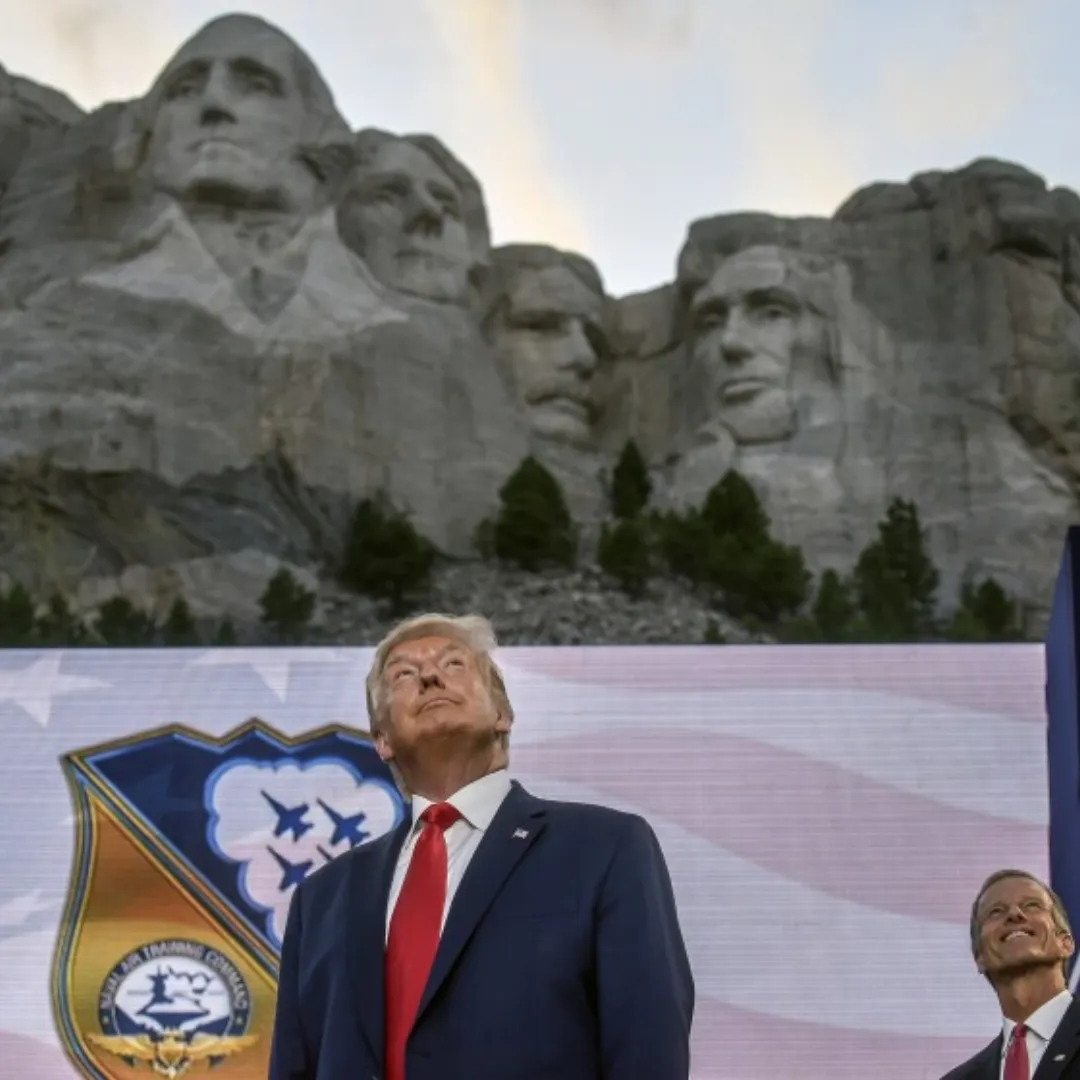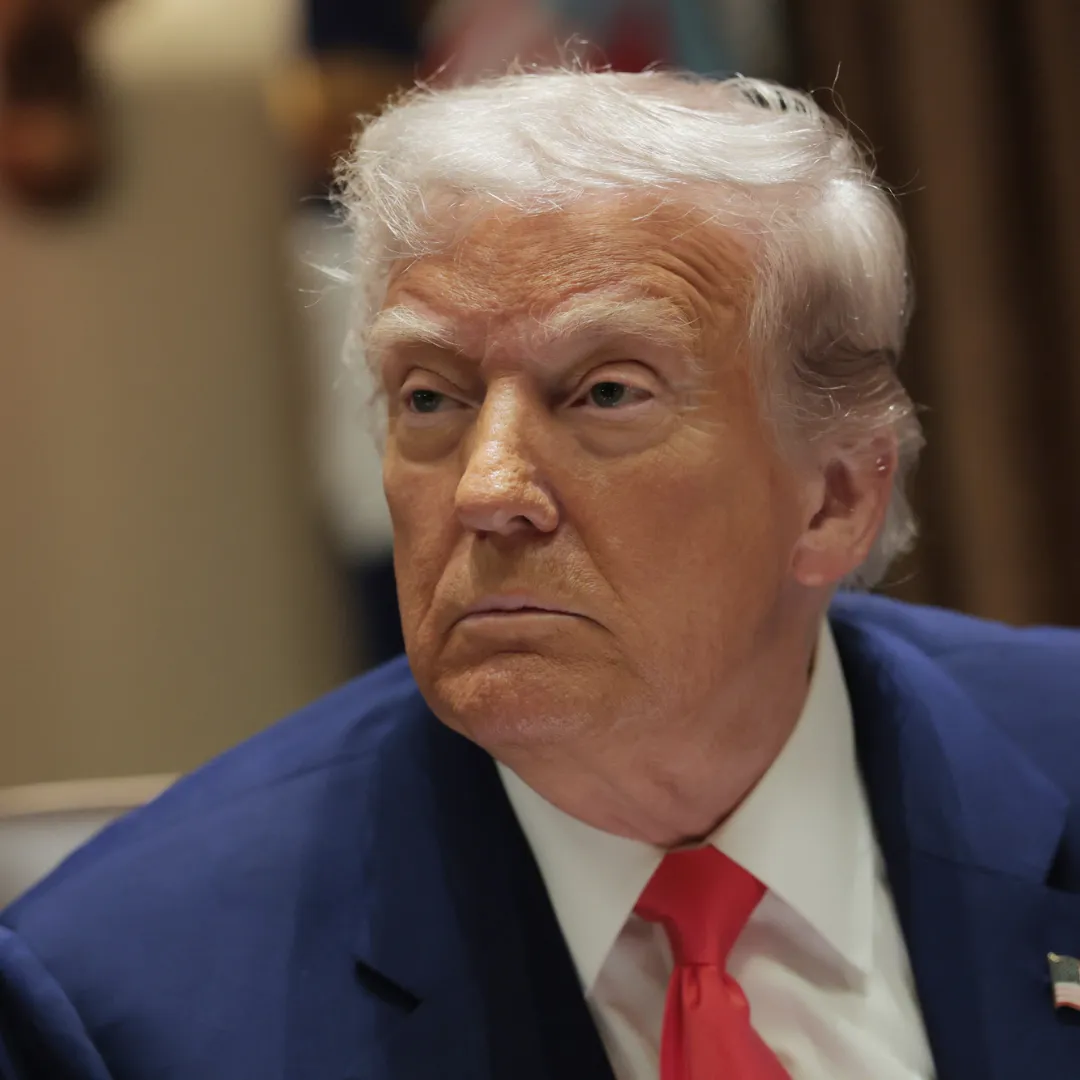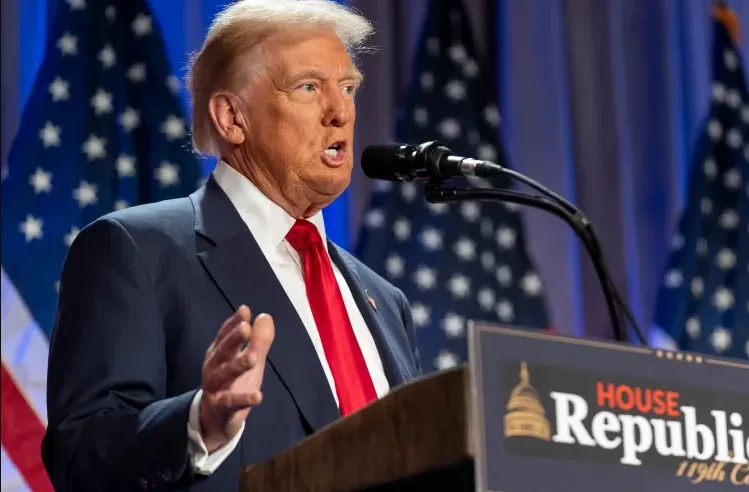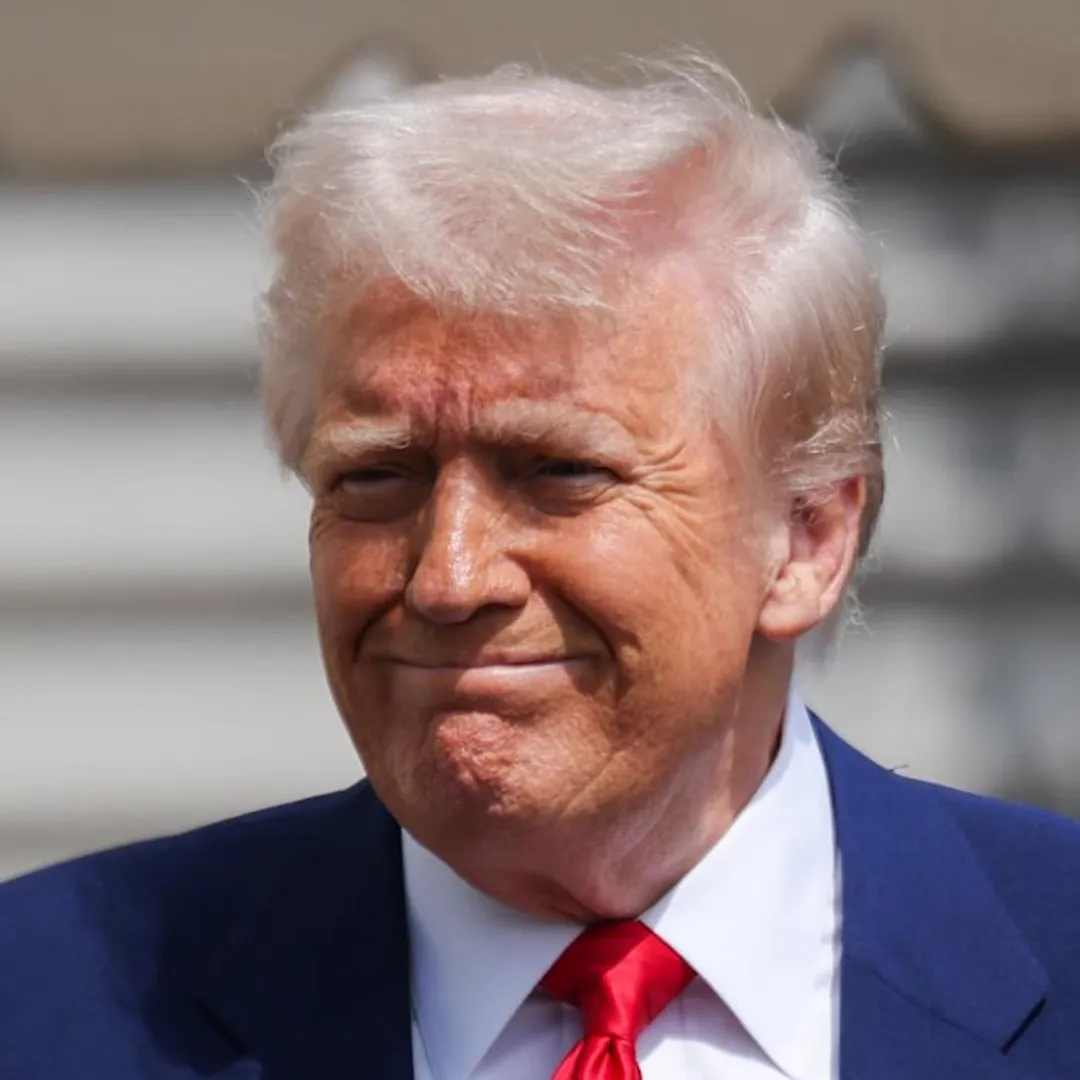
At a glittering gala in downtown Birmingham, while global markets trembled and headlines warned of economic instability, the Alabama Republican Party gathered for its annual Trump Victory Dinner. And despite the tremors beyond the ballroom doors, inside, it was all applause.
State GOP Chairman John Wahl stood before a crowd of lobbyists, donors, and elected officials and issued a red-meat message to the converted. “The Alabama Republican Party will buy [Trump critics] a plane ticket to any country in the world they want to go to,” he said, triggering laughter, cheers, and a standing ovation.
Donald Trump Jr. took the stage shortly after and dialed the rhetoric higher, once again repeating the false claim that his father won the 2020 election. The energy in the room surged like a campaign stop, not a fundraiser.
But as the applause echoed off the chandeliers, a quieter conversation buzzed beneath it—concerns about Trump’s sweeping tariff policies, deep cuts to federal spending, and a looming overhaul of immigration enforcement.
This is Alabama, after all—a state that voted for Trump by 65% in 2024, that hasn't gone blue in a presidential race since 1976, and where the GOP controls every statewide office. But it’s also a state that relies heavily on federal funds, foreign investment, and labor from both sides of the immigration aisle.
“There are some concerns, some conversations,” said John Merrill, Alabama’s former Secretary of State, as he adjusted a Trump 45–47 lapel pin — a nod to Trump’s non-consecutive second term. “Alabama has been a net recipient of the very federal government Trump now wants to shrink. We get more back than we send to Washington.”
That tension runs deep in a state where Medicaid, Medicare, and federal infrastructure dollars keep hospitals open, roads paved, and schools funded — even as the party leading it cheers policies aimed at slashing those same programs.

And yet, Merrill says, the support for Trump remains sturdy. “He’s the only one who’ll stand up and shake the system.”
A few blocks from the event, UAB Health System sits as a testament to federal research dollars and national health grants. One of the region’s top employers and research institutions, its funding — particularly from the National Institutes of Health — could be impacted by Trump’s Department of Government Efficiency (DOGE) and its ambitious mission to slash federal expenditures.
Attorney General Steve Marshall, listed as a “Silver Sponsor” of the gala, declined to join Democratic counterparts in a lawsuit opposing DOGE’s suspension of already-approved health research funding.
Meanwhile, Alabama’s Medicaid system, one of the most generous in terms of federal match rate due to the state’s low per-capita income, could face significant constraints under Trump’s budget reduction plans.
Drive west toward Tuscaloosa, and you hit a symbol of Alabama’s economic globalization: a sprawling Mercedes-Benz manufacturing complex, once a poster child of Southern industrial rebirth. Foreign investment, non-union labor, and state incentives brought jobs and prestige — but also foreign supply chains.
Now, many of the components assembled at Mercedes and its suppliers will be taxed under Trump’s new 25% vehicle tariffs. Supporters say it will pressure companies to move more production onshore. Critics — quietly, even among GOP members — fear it will raise prices and hurt competitiveness.
“Trump’s got something to bargain with,” said Terry Martin, a county GOP committeeman. “That’s the way he thinks, and maybe that’s good. But yeah… prices are going to pop up for a while.”
He pauses. “Especially on parts.”
And those parts come from Germany, Japan, Korea, and increasingly, China — the same countries Trump is targeting for “not paying their fair share.”
Further south, agriculture remains Alabama’s cultural and economic backbone. But even the fields are tangled in political contradictions.
Row crop farms in the Black Belt and meat processing plants in the North depend on migrant labor — some legal, some undocumented. Trump’s calls for mass deportations and border crackdowns threaten to disrupt an already strained workforce.
Merrill reflected on Alabama’s own failed immigration crackdown under HB 56 during the Obama years. “We passed a strict law,” he said. “Then the industries started calling. We couldn’t keep the fields picked or the plants running.”
Even GOP Chairman Wahl, in a private interview after his fiery speech, showed a softer side. “It is possible to secure our border and still take into account migrants who deserve to be here,” he said. “This has to be a two-pronged approach.”
Then there’s education.
Trump’s DOGE — now co-led by Elon Musk, an odd yet influential choice — has made clear its intention to dismantle the Department of Education.
Tallapoosa County GOP Chair Denise Bates, a former school board member, is uneasy. “Am I 100% for getting rid of the Department of Education? I can’t say that I am,” she admitted. “You know, we’re a net receiver.”
Still, Bates cheered when Sen. Tommy Tuberville took the stage at the gala. “We’re dead broke,” he told the crowd, defending Musk and DOGE’s aggressive posture. “It’s past time we level the playing field and tell the rest of the world to get off their ass and start paying their fair share.”
The crowd roared.
But again, offstage, Bates circled back. “I hope there are guardrails,” she said, referring to potential education cuts. “Not every county has the resources to pick up what the federal government drops.”
Even so, the loyalty to Trump remains unshaken — especially when voters think about the long arc of Alabama’s economic story.
“We just want jobs,” Bates said. “We watched Birmingham steel fade, and after NAFTA, we lost textiles to Mexico and Southeast Asia. Trump was the first to say that wasn’t okay.”
State Sen. Jabo Waggoner, Alabama’s longest-serving legislator, echoed the sentiment. “Trump is the most popular president here since Reagan, hands down.”
And John Wahl still remembers Trump’s first massive outdoor rally in Alabama back in 2015 — 30,000 people packed into Mobile’s Ladd-Peebles Stadium. “That’s when it started,” he said, “and people haven’t stopped believing since.”
Wahl, who owns a butterfly farm near Huntsville, offered a final thought on why the doubts don’t yet outweigh the faith.
“He’s going to let everybody know he’s serious,” he said. “Trump will bring people to the bargaining table. We’re actually going to see the negotiator conduct business.”
Alabama isn’t about to flip blue. Not in 2026. Not in 2028. But the state’s deepening dependence on federal programs, global supply chains, and migrant labor leaves it vulnerable to the very policies its leaders champion.
So the question isn’t whether Alabama still stands with Trump. It does.

The question is how much strain the alliance can take before the cracks start to widen—into politics, into policy, and eventually into votes.
And in a state where cheers ring loud, but dependence runs deep, the price of loyalty may soon come due.





